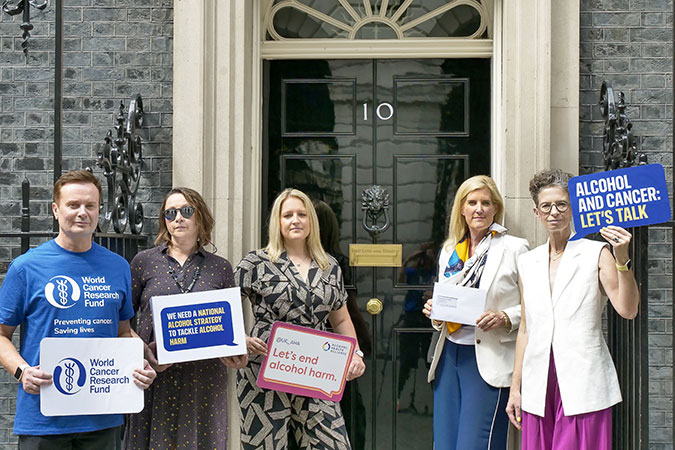Experts we work with
We collaborate with world-renowned independent experts spanning a variety of fields and expertise, to make sure that all our work is impartial and rigorous, and to challenge us to achieve the best results possible.
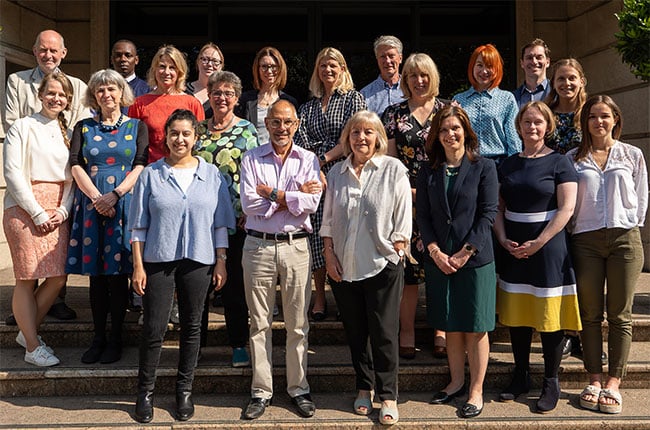
On this page
Global Cancer Update Programme Panel
The Panel of the Global Cancer Update Programme comprises world-renowned independent experts in a variety of disciplines from across the world.
-
Chair – Prof Lord John Krebs
 Prof Lord John Krebs, University of Oxford,
UK
Prof Lord John Krebs, University of Oxford,
UKLord John Krebs is Emeritus Professor of Zoology in the University of Oxford. His research area is behavioural ecology and he has published more than 300 research papers, reviews, articles and books.
Lord Krebs completed his undergraduate degree in Zoology (1966) and his DPhil (1970) at Pembroke College, Oxford. After a year as a Departmental Demonstrator in Ornithology at Oxford, he moved to the University of British Columbia as an Assistant Professor of Ecology (1970–73).
He spent a period at the University College of North Wales in Bangor as lecturer in Zoology (1973–75) before returning to Oxford as University Lecturer in Zoology in the Edward Grey Institute of Field Ornithology. Between 1988 and 2005, he was a Royal Society Research Professor at Oxford.
Lord Krebs was Chief Executive of the UK Natural Environment Research Council from 1994 to 1999 and founding Chairman of the UK Food Standards Agency from 2000 to 2005. In 2005, he gave the Royal Institution Christmas Lectures. From 2005–15 he served as Principal of Jesus College, Oxford.
He was appointed to the House of Lords in 2007, as an independent cross-bencher, served as Chairman of the House of Lords Science and Technology Select Committee from 2010 to 2014, and was a member of the Energy and Environment Select Committee from 2015–19.
In 2019–20 he chaired a Select Committee inquiry on Food, Poverty, Health and the Environment. He currently sits on the Science and Technology Select Committee.
He was President of the British Science Association in 2012–13. Between 2009 and 2017 he was a member of the UK Climate Change Committee and chaired its Adaptation Sub-Committee.
Lord Krebs is a scientific adviser to Marks & Spencer and Drax, and Chairman of Oxford Risk, a fintech spinout of Oxford University.
Lord Krebs has received many awards and honours, including a knighthood for services to science, 17 honorary degrees, Fellowship of the Royal Society, the US National Academy of Sciences, the American Philosophical Society, the US Academy of Arts and Sciences, and the German National Academy of Sciences (Leopoldina).
-
Deputy Chair – Prof Matty Weijenberg
 Prof Matty Weijenberg, Maastricht University, Netherlands
Prof Matty Weijenberg, Maastricht University, NetherlandsMatty Weijenberg is Professor of Molecular Epidemiology of Cancer and Chair of the Department of Epidemiology at Maastricht University.
Her work is part of the Programme Prevention within the GROW School for Oncology and Reproduction at the university.
The molecular epidemiological research conducted within her team is focused on lifestyle factors (including diet, physical activity and body composition) in relation to the incidence and prognosis of colorectal cancer, while accounting for tumour heterogeneity, genetic variation, and using molecular markers to understand the biological mechanisms underlying the associations under investigation.
Over the past years there has been a specific interest in lifestyle factors in relation to the quality of life of individuals who have survived colorectal cancer. The research is mostly embedded within two prospective cohort studies:
- the Netherlands Cohort Study on diet and cancer (NLCS), which is focused on the etiology and prognosis of cancer, headed by Prof Piet van den Brandt.
- the Energy for life after ColoRectal cancer study (the EnCoRe study), which is focused on the prognosis and quality of life after the diagnosis of colorectal cancer.
Matty studied at Wageningen University where she obtained a Master of Science in Human Nutrition in 1992 and was registered as an Epidemiologist (Dutch registration equivalent to Master degree) in 1993.
Between 1992 and 1995 she worked as a scientist at the Department of Chronic Diseases and Environmental Epidemiology, at the National Institute of Public Health and the Environment in Bilthoven, the Netherlands.
She obtained her PhD degree from Wageningen University in 1996. She spent a year as an assistant professor of epidemiology on a Unilever Chair at the Department of Epidemiology at the Leuven Catholic University between 1996 and 1997.
She then developed her career in molecular epidemiology of colorectal cancer at Maastricht University.
-
Cancer Incidence – Prof Monica Baskin
 Prof Monica Baskin, University of Pittsburgh, US
Prof Monica Baskin, University of Pittsburgh, USMonica L. Baskin is a Professor of Medicine in the Division of Haematology/Oncology, Associate Director of Community Outreach and Engagement and Associate Director of Health Equity at the Hillman Cancer Centre.
She received her Bachelor of Arts in psychology and sociology from Emory University, and a Master of Science in community counselling and PhD in counselling psychology from Georgia State University.
She is a licensed psychologist whose research focuses on minority health and health disparities. Her research utilises community-based participatory methods to better understand and address individual, family and environmental factors associated with the prevention and control of chronic diseases such as cancer, diabetes and heart disease.
Her research has largely focused on African-American and rural communities in the Deep South. This work has been funded by the National Institutes of Health (NIH), Robert Wood Johnson Foundation (RWJF), and other regional and local foundations.
Dr Baskin is a trained and authorised facilitator of nationally recognised training programmes on unconscious bias for health professionals and equity, diversity, and inclusion (EDI). She is also a past president of the Society of Behavioural Medicine (SBM).
-
Cancer Mechanisms – Prof Sarah Lewis
 Prof Sarah Lewis, University of Bristol, UK
Prof Sarah Lewis, University of Bristol, UKI am a Professor of Molecular Epidemiology in the Department of Population Health Sciences within the Medical School at the University of Bristol, where I have worked since January 2004.
My research is focused on Mendelian randomisation and synthesising evidence on biological mechanisms for disease, in particular in relation to cancer and orofacial cleft.
I’m currently a work package lead and co-investigator of a The Integrative Cancer Epidemiology Programme funded by CRUK.
I hold two WCRF project grants as PI and am a co-applicant on two further WCRF grants awarded to Dr Brigid Lynch at the Victoria Cancer Centre in Melbourne, Australia, and Dr Kostas Tsilidis at the University of Ioannina in Greece and Imperial College London.
I am also the Bristol lead for a recently awarded EU Horizon2020 grant on gallbladder cancer, and the Mendelian randomisation expert and training lead for the mental health strand of the NIHR Biomedical Research Centre grant.
> View the rest of the Expert Committee on Cancer Mechanisms
-
Cancer Survivorship – Prof Ellen Copson
Prof Ellen Copson, University of Southampton, UK
 Prof Copson is Professor of Medical Oncology and honorary medical oncology consultant at the University of Southampton, where she treats patients with early and advanced breast cancer.
Prof Copson is Professor of Medical Oncology and honorary medical oncology consultant at the University of Southampton, where she treats patients with early and advanced breast cancer.Following a PhD studying the molecular genetics of heritable breast cancer, Prof Copson developed a particular interest in the genomic and modifiable host factors that influence the outcome of early breast cancer.
She is involved with research studies investigating the impact of breast cancer genomics and body composition/nutrition factors on oncological outcomes. Prof Copson is lead oncologist of the observational POSH study, a large national cohort study of young breast cancer patients, and of the CANDO 3 pilot study of body composition and chemotherapy toxicity, which is recruiting early breast cancer patients at cancer centres across the UK.
Prof Copson also acts as clinical adviser for several early breast cancer survivorship studies and is principle investigator for observational and interventional clinical trials in early and advanced breast cancer.
Prof Copson has been co-chair of the Wessex Molecular Tumour Board since 2017 and cancer lead of the West Midland, Oxford and South Central Genomic Laboratory Hub since October 2021.
She is chair of the National Oncogenetics Training Working Party and lead oncology adviser for the educational workstream of the CanGene-CanVar research program and the Health Education England GeNotes educational resource initiative.
Ellen was a member of the NIHR Breast Cancer Clinical Studies Group from 2013–19. During this period she set up the national Breast Cancer Trainees Research Collaborative Group, and remains senior chair of this group.
Locally, Ellen is oncology lead and deputy lead of year one of the University of Southampton medical degree course.
-
Obesity – Prof Jaap Seidell
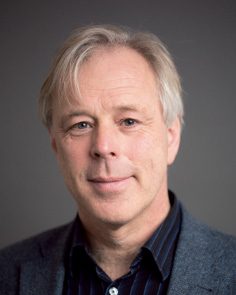 Prof Jaap Seidell, VU University, Netherlands
Prof Jaap Seidell, VU University, Netherlands
Professor Jacob Seidell was appointed as full professor (2002–present) and head of the Institute for Health Sciences (2003–13) at the VU University in Amsterdam.
Since 2013 he is university professor at the VU University and co-director of Sarphati Amsterdam, a multidisciplinary research institute that focuses on healthy development of children through healthier lifestyles and environments.
He obtained his MSc (1983) and PhD (1986) at the Department of Human Nutrition at the University of Wageningen, the Netherlands. He was awarded a senior research fellowship by the Royal Academy of Arts and Sciences (KNAW) for the period 1988–92.
From 1992–02 he was head of the Department for Chronic Diseases Epidemiology at the National Institute for Public Health and the Environment. He also worked in Sweden, the US and Canada.
His research focuses on the understanding of determinants of food choice and the effectiveness of (policy) interventions in the context of the prevention and management of non-communicable diseases in general, and of obesity in particular.
He has (co)-authored more than 500 scientific papers and chapters in books on these topics. He also writes columns and op-eds for national newspapers, and has published books on nutrition for the general public.
He has chaired committees on dietary guidelines for the general population as well as for people with diabetes or obesity, and he was a frequent consultant to the World Health Organization on these matters.
He has served as president-elect and president (1992–00) of the European Association for the Study of Obesity and was editor-in-chief of the European Journal of Clinical Nutrition (1996–06) and Public Health Nutrition (2006–14).
He is a member of the Royal Academy of Arts and Sciences (KNAW) and the Royal Holland Society of Sciences and Humanities (KHMW).
-
Global Representative – Prof Rajiv Chowdhury
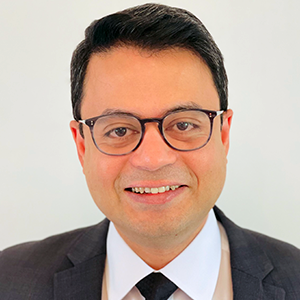 Prof Rajiv Chowdhury, Florida International University, US
Prof Rajiv Chowdhury, Florida International University, USProf Rajiv Chowdhury is a medically trained global NCD epidemiologist. He works as chair of Global Health at the Robert Stempel College of Public Health at Florida International University.
Before embarking on his US-based role, Prof Chowdhury worked at the University of Cambridge and University of Exeter in the UK, as a reader and professor in Global Health, respectively.
At Cambridge, between 2008 and 2020, Prof Chowdhury co-established, as a founding PI, several pioneering NCD cohort studies in South/East Asia and served as the Scientific Director of a UKRI-funded £8.4m global NCD research programme in South Asia (CAPABLE).
Prof Chowdhury currently serves as a country expert in the Global Burden of Disease initiative. In addition, he maintains adjunct roles as a professor at the University of Bern in Switzerland and Executive Director at the South Asian Centre for Non-Communicable Disease Research in Bangladesh.
Prof Chowdhury’s research interests focus on investigating how environmental, societal and biological factors may influence the risks and inequities of non-communicable disease worldwide. His scientific publications have received >60,000 citations (his current publication h-index is 66) and informed multiple global guidelines. His work has also received significant media attention, appearing in the New York Times, CNN and BBC.
Prof Chowdhury was elected a Fellow of the American College of Epidemiology in 2021, and a Fellow of the European Society of Cardiology in 2016. In 2013, he received the Bill Gates Senior Prize for contributions to global health.
Prof Chowdhury holds a doctoral degree in Public Health from the University of Cambridge, where he had the titles of Commonwealth Scholar and Gates Cambridge Scholar.
He also received advanced academic training in Global Health at the Harvard and Johns Hopkins Schools of Public Health, in Global Nutritional Epidemiology at the Imperial College London, in Genetic Epidemiology at the Erasmus University Netherlands, and in Clinical Trials at the London School of Hygiene & Tropical Medicine.
-
Public Representative – Lynette Hill
 Lynette Hill, Public Representative, UK
Lynette Hill, Public Representative, UKLynette has a wide range of administrative, communication, financial and counselling skills from her previous roles in the Civil Service. She first became aware of WCRF when working as part of an in-house Employee Assistance Programme and supporting staff with cancer diagnoses.
Working alongside people and seeing the impact of lifestyle choices has made her passionate about how diet, nutrition and exercise can help with many aspects of physical and mental health. She has found WCRF publications and advice to be an indispensable resource both personally and as a practitioner. She hopes to build on these experiences as the public representative of the Global Cancer Update Programme.
CUP Global Formal observers
-
Dr Carolina Espina
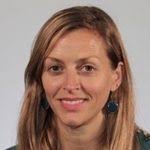 Dr Carolina Espina, International Agency for Research on Cancer, France
Dr Carolina Espina, International Agency for Research on Cancer, France
Dr Espina is a staff scientist in the Environment and Lifestyle Epidemiology Branch at the International Agency for Research on Cancer (IARC/WHO). She has 14 years of professional experience in cancer research and public health.
She is the Principal Investigator of the Latin American and the Caribbean Code against Cancer, the co-Principal Investigator of the update of the European Code Against Cancer, and leader of the World Code Against Cancer Framework to scale up the European Code model to other regions of the world.
She is the Scientific Secretariat of the consortium Cancer Prevention Europe, leading a variety of cancer prevention projects, dissemination research, knowledge transfer and capacity building.
Before IARC, she worked in WHO-HQ in Geneva and the Pan-American Health Organization in Peru. She holds a PhD in Molecular Biology of cancer and a Master in Public Health (health promotion).
-
Dr Jason Montez
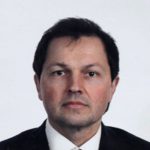 Dr Jason Montez, World Health Organisation, CH
Dr Jason Montez, World Health Organisation, CHJason Montez is a Scientist in the Standards and Scientific Advice unit within the Department of Nutrition and Food Safety at the World Health Organization (WHO) in Geneva, Switzerland.
His work includes the development and dissemination of WHO nutrition guidelines with a focus on healthy diet.
Prior to joining WHO in 2013, Dr Montez was a consultant to WHO and other organisations, Director of Research and senior scientist in the private sector, and co-founder of a biotechnology start-up.
He received a PhD in Biomedical Sciences from The Rockefeller University and MPH from New York University, both located in New York, USA.
-
Dr Mathilde Touvier
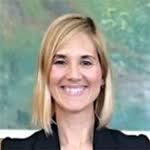 Dr Mathilde Touvier, French National Institute of Health and Medical Research (INSERM), FR
Dr Mathilde Touvier, French National Institute of Health and Medical Research (INSERM), FRDr Mathilde Touvier is a Research Director at INSERM, principal investigator of the NutriNet-Santé cohort. She is the Director of the Nutritional Epidemiology Research Team, EREN (U1153 Inserm / U1125 Inrae / Cnam / Sorbonne Paris Nord University).
She coordinates researches on the associations between nutrition and disease risk in primary prevention (eg PI of a European Research Council Consolidator Grant 2020–25 and of several projects funded by the French National Cancer Institute). In particular she coordinates an extended research programme on the impact of industrial food, food additives and food processing on health.
She is an author/co-author of >300 publications in peer-reviewed international journals. She is expert in several workshops at the French National Cancer Institute (INCa), French Agency for Food, Environmental and Occupational Health & Safety (ANSES), European Commission (EU DG Health and Food Safety), Ministry of Health (PNNS), French Ministry of Higher Education and Research (France 2030 steering committee), Global Burden of Disease, and member of the Scientific Committee of WHO-IARC.
She is a member of the steering committee of the Nutrition and Cancer NACRe network. She has been awarded the Inserm Research Prize in 2019 and the Bettencourt-Schueller Foundation Coup d’élan Research Prize in 2021. She has been appointed Professor at the College de France in Nutrition and Public Health for 2022–23.
-
Shalini Jayasekar Zürn
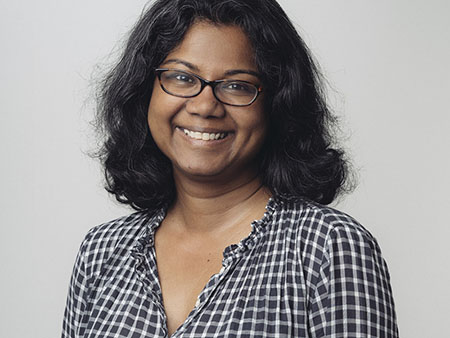 Shalini Jayasekar Zürn, Union for International Cancer Control
Shalini Jayasekar Zürn, Union for International Cancer Control
Shalini Jayasekar Zürn is a senior advocacy manager with the Union for International Cancer Control (UICC). She is a biologist by training and has extensive experience on the issues of access to medicines.
Shalini gained experience in this topic by working with the World Health Organization on its Model List of Essential Medicines as well as Médecins Sans Frontières’s access campaign and other NGOs. She also has experience working with the pharmaceutical industry.
-
Dr Emily Tonorezos
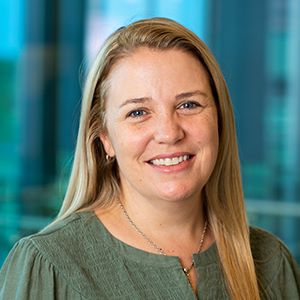 Dr Emily Tonorezos, National Cancer Institute, US
Dr Emily Tonorezos, National Cancer Institute, USEmily Tonorezos serves as Director of the Office of Cancer Survivorship, part of the Division of Cancer Control and Population Sciences at the National Cancer Institute (NCI).
In this position, Dr Tonorezos leads NCI’s efforts to address the challenges facing cancer survivorship and their families – to prevent or mitigate adverse effects and to improve the health and wellbeing of cancer survivorship from the time of diagnosis through the remainder of their lives.
Dr Tonorezos is a general internist, having earned her medical degree from the University of Rochester School of Medicine and masters in public health from the Johns Hopkins Bloomberg School of Public Health.
She completed internal medicine residency and chief residency at Columbia University Medical Center, as well as a general internal medicine fellowship at the Johns Hopkins Hospital.
Expert Committee on Cancer Incidence
Reviewing diet, nutrition, physical activity and cancer incidence will continue to be a core element of the Global Cancer Update Programme.
> Chair of the Expert Committee on Cancer Incidence: Professor Monica Baskin
-
Deputy Chair – Dr Yikyung Park
 Dr Yikyung Park, Washington University,
US
Dr Yikyung Park, Washington University,
USYikyung Park is an Associate Professor in the Division of Public Health Sciences, Department of Surgery, at Washington University School of Medicine.
She received a doctoral degree in nutritional epidemiology from Harvard TH Chan School of Public Health in 2005.
Dr Park previously worked at the Division of Cancer Epidemiology and Genetics at the National Cancer Institute and received the Award of Merit for scientific leadership of the NIH-AARP Diet and Health Study.
Her research focuses on identifying diet, lifestyle, and environmental factors that are related to cancer risk and survival, and her work on diet, obesity and physical activity (h-index 71) made a significant contribution to the WCRF’s Third Expert Report and Cancer Prevention Recommendations.
Her recent work includes the effects of eating time, temporal dietary patterns, and circadian rhythm-disrupting lifestyle on cancer and chronic diseases.
Another area of her research interest is nutritional epidemiology methods development, including measurement error corrections in diet-disease associations, biomarkers of dietary intakes, and temporal dietary patterns.
-
Prof Michael Leitzmann
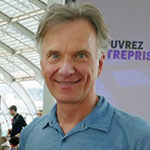 Prof Michael Leitzmann, Regensburg University, Germany
Prof Michael Leitzmann, Regensburg University, GermanyMichael Leitzmann is chair of the Department of Epidemiology and Preventive Medicine at the University of Regensburg, Germany. He holds an MD from the University of Berlin, and a MPH in quantitative methods and a doctorate in public health from Harvard University.
His main research interests involve the independent and joint relations of physical activity, body size, and diet to the development and prognosis of chronic disease, particularly cancer. This includes methodological research on the assessment of physical activity and its individual components in large-scale epidemiologic studies and clarification of biologic mechanisms linking the adverse effects of physical inactivity and adiposity to cancer risk and prognosis.
Prior to his appointment at Regensburg University, he was an investigator at the Nutritional Epidemiology Branch of the US National Cancer Institute, where he served as co-principal investigator of the NIH-AARP Diet and Health Study, a prospective cohort of over 500,000 US women and men.
He holds a group award of merit for exemplary leadership in advancing the US National Cancer Institute’s commitment to understanding the science of energy balance and cancer, and applying that understanding to reduce the cancer burden.
-
Dr Jennifer Baker
 Dr Jennifer Baker, Frederiksberg Hospital, Denmark
Dr Jennifer Baker, Frederiksberg Hospital, DenmarkDr Jennifer Baker is a Senior Researcher and leader of the group on lifecourse epidemiology at the Center for Clinical Research and Prevention, Copenhagen University Hospital System, in Denmark.
Her research programme investigates how body size and growth during childhood in combination with other exposures across the life course relate to disease. Dr Baker’s work focuses on short- and long-term effects of overweight and obesity in children.
She and her group have shown that a higher body mass index in childhood increases the risk during adult life of numerous non-communicable diseases including 9 types of cancer, cardiovascular disease and type 2 diabetes.
Dr Baker has authored more than 100 peer-reviewed publications and served on several international expert scientific committees.
She is co-chair for the European Association for the Study of Obesity Childhood Obesity Task Force.
-
Prof Elisa Bandera
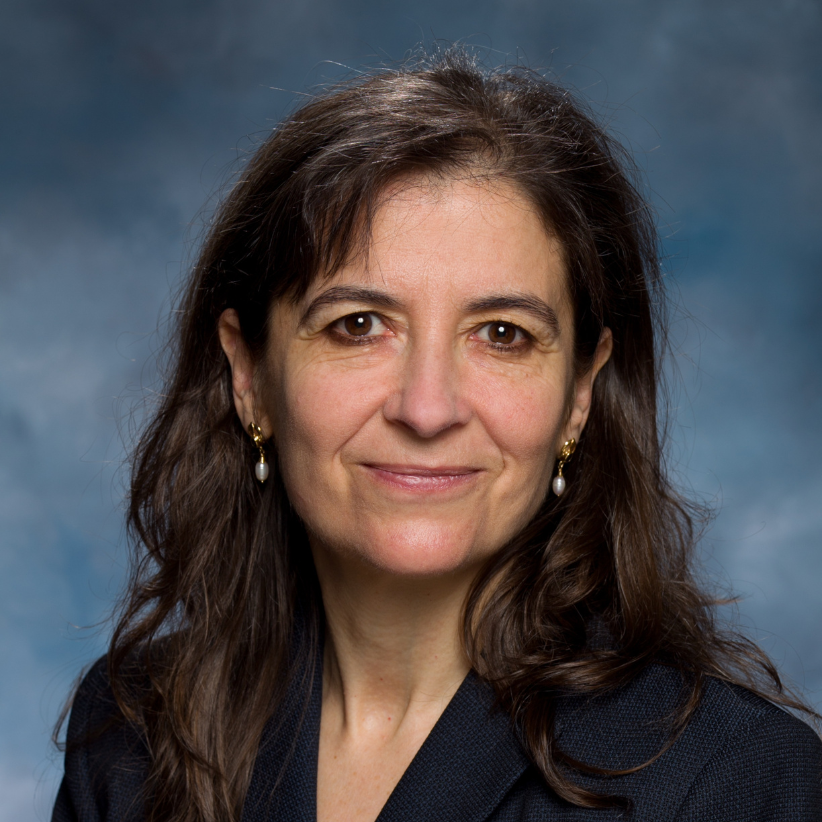
Prof Elisa Bandera, Rutgers Cancer Institute of New Jersey, US
Professor and Chief, Cancer Epidemiology and Health Outcomes, Cancer Prevention and Control Program Leader, and Unilever Endowed Chair for the Study of Diet and Nutrition in the Prevention of Chronic Disease at the Rutgers Cancer Institute of New Jersey and Professor of Medicine, Robert Wood Johnson Medical School New Brunswick, New Jersey
Prof Bandera’s major research interests include the impact of obesity on breast and ovarian cancer risk, and treatment outcomes and survival, with a focus on cancer health disparities.
She has served as principal investigator in several epidemiologic studies, including the New Jersey Ovarian Cancer Study, which is a member of the Ovarian Cancer Association International Consortium, the Jersey Girl Study (a study evaluating factors affecting puberty in girls), the Women’s Circle of Health Study (a study of breast cancer in African-American women, which is a member of the AMBER Consortium), the Women’s Circle of Health Follow-up Study (a cohort study of African-American breast cancer survivors), and KP-ROCS (a cohort study evaluating racial/ethnic disparities in ovarian cancer).
Her research has been funded by several grants from the National Cancer Institute. Prof Bandera led the systematic literature review and meta-analysis on endometrial cancer in support of the 2007 WCRF/AICR Second Expert Report and served for more than 10 years as a member of the WCRF/AICR Expert Panel for the Continuous Update Project and the 2018 WCRF/AICR Third Expert Report.
-
Dr Mark Sherman
 Dr Mark Sherman, Mayo Clinic, US
Dr Mark Sherman, Mayo Clinic, USDr Sherman is Professor of Epidemiology, Laboratory Medicine and Pathology and Cancer Biology at the Mayo Clinic in Florida.
His focus is interdisciplinary research focusing on discovering risk factors, markers and mechanisms that predict the development and prognosis of women’s cancers.
Before joining the Mayo Clinic in 2016, Dr Sherman was at the National Cancer Institute, where he worked in the Division of Cancer Epidemiology and Genetics (intramural research) and Division of Cancer Prevention (extramural Branch Chief).
He started his career at the University of Chicago, before moving to a pathology residency at New England Deaconess Hospital, and a cytopathology fellowship at Montefiore Medical Center. He spent 13 years as an academic diagnostic pathologist.
-
Dr Steven Clinton
 Dr Steven Clinton, The Ohio State University, US
Dr Steven Clinton, The Ohio State University, US
Dr Clinton is a physician-scientist at The Ohio State University Comprehensive Cancer Center. He is director of the large multidisciplinary genitourinary cancer programme at The James Cancer Hospital where he specialises in prostate cancer.
Dr Clinton’s research activities focus on many aspects of diet, nutrition and cancer. The research efforts include metabolic epidemiology and clinical intervention trials, as well as basic laboratory studies of cellular and molecular biology resulting in over 320 scientific publications, reviews and book chapters.
Dr Clinton provides service to many national and international organisations involved in the war on cancer. He has served AICR/WCRF as chair of the annual meeting, grant reviewer, and on multiple review panels including the landmark 2018 report.
Dr Clinton completed service to the US Department of Health and Human Services to prepare the dietary guidelines for America 2015–2020 Report, which impacts hundreds of food and agriculture programmes in the US.
He served the Institute of Medicine/National Academy of Sciences to define dietary reference intakes for calcium and vitamin D. Current efforts include working with the American Society for Clinical Oncology to define diet, nutrition and exercise guidelines during cancer therapy.
-
Dr Paul Brennan
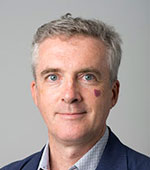 Dr Paul Brennan, International Agency for Research on Cancer (IARC), France
Dr Paul Brennan, International Agency for Research on Cancer (IARC), FrancePaul Brennan is head of the Genomic Epidemiology Branch of IARC/WHO in Lyon, France.
The research focus of the branch is to use genomic techniques and biomarkers to help identify non-genetic risk factors for cancer, and even help identify early-stage cancers.
His group works with colleagues in many different parts of the world, with active field work studies in central and eastern Europe, central and south-east Asia, and South America.
Expert Committee on Cancer Survivorship
We want to focus on the impact of diet, nutrition and physical activity on long-term health after a cancer diagnosis.
> Chair of the Expert Committee on Cancer Survivorship: Dr Ellen Copson
-
Deputy Chair – Prof Andrew Renahan
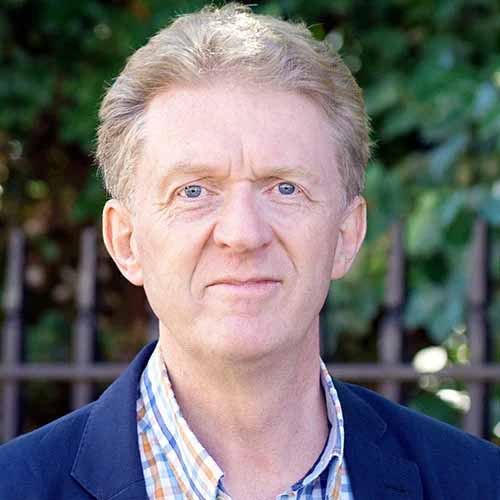 Prof Andrew Renahan, University of Manchester, UK
Prof Andrew Renahan, University of Manchester, UKAndrew Renehan is Professor of Cancer Studies and Surgery at the University of Manchester, and researcher at the Manchester Cancer Research Centre and the NIHR Manchester Biomedical Research Centre, UK.
He is honorary consultant in colorectal and peritoneal surgical oncology at the Christie NHS Foundation Trust, Manchester.
He leads research in the following areas:
- anorectal cancer functional outcomes including organ preservation approaches
- obesity links with cancer incidence and outcome
He was a member of the IARC handbook writing group on weight control and cancer in 2016 and is chair of the EASD Diabetes and Cancer Study Group.
He is part of the CRUK Alliance for Cancer Early Detection. He uses advanced statistical methodologies to support his research including causal inference modelling, advanced meta-analysis methods, and quasi-experiments designs through observational data.
-
Prof Anne May
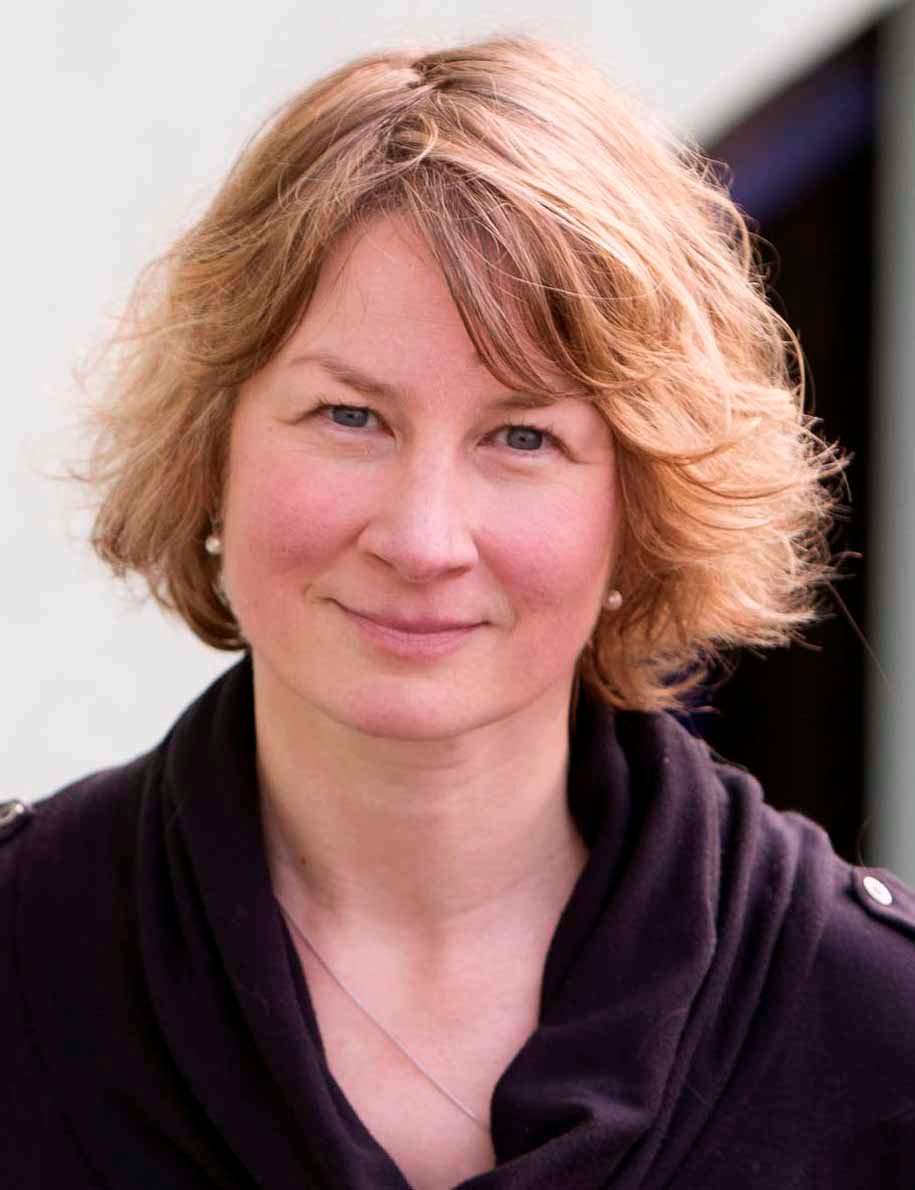 Prof Anne May, University Medical Centre Utrecht, Netherlands
Prof Anne May, University Medical Centre Utrecht, NetherlandsAnne May is a Professor in Clinical Epidemiology of Cancer Survivorship and Manager Research at the Julius Center for Health Sciences and Primary Care, University Medical Center Utrecht, The Netherlands.
She’s been involved in exercise oncology research for almost 20 years and has performed several multi-centre randomised controlled trials showing the positive effects of exercise on treatment-related side-effects in patients with, among others, breast, colon or oesophageal cancer.
She is leading the international PREFERABLE consortium investigating the effects of exercise in patients with metastatic breast cancer (EFFECT study) and the effects of individualised live-remote exercise in patients with long-lasting complaints after cancer treatment (LION-RCT) in Europe and Australia.
She also serves at lifestyle and cancer-related guideline panels (ASCO, ACSM).
-
Prof Anne Tjønneland
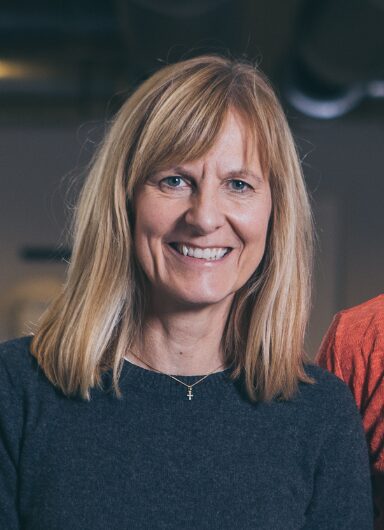 Prof Anne Tjønneland, Danish Cancer Society Research Centre, Denmark
Prof Anne Tjønneland, Danish Cancer Society Research Centre, DenmarkWith more than 30 years of research experience in nutritional and cancer epidemiology, Anne Tjønneland has established and is principal investigator of the Danish prospective cohort study Diet, Cancer and Health – a diet and lifestyle information biobank of 57,053 participants.
In 2015–19, the cohort was extended to include biological children and grandchildren in the Diet, Cancer and Health – Next Generations study.
Prof Tjønneland is principal investigator and member of the steering committee of the European Prospective Investigation into Cancer and Nutrition (EPIC), a multi-centre cohort study with 10 European countries.
She was named as a Highly Cited Researcher by Clarivate/Web of Science in 2015, 2016, 2017 and 2018, and has more than 1,300 peer-reviewed publications.
-
Prof Galina Velikova
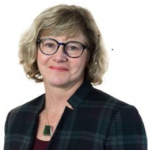 Prof Galina Velikova, University of Leeds, UK
Prof Galina Velikova, University of Leeds, UKGalina Velikova is an academic Medical Oncologist at the University of Leeds and Leeds Teaching Hospitals, UK, with more than 20 years of successful patient-centred research using electronic patient-reported outcome measures in daily practice and clinical trials.
She led a National Institute for Health Research (NIHR) 5-year programme grant for applied research on patient self-reported symptoms and toxicity, using an online reporting system (QTool), uniquely integrated in electronic records, along redesigned care pathways for remote monitoring during cancer treatment to improve patient safety. Further research projects evaluate the use of the electronic system for remote monitoring and follow-up of cancer patients after treatment.
Prof Velikova has experience in leading collaborative research, both nationally and internationally, such as quality of life sub-studies of international breast cancer trials (TACT2, SUPREMO). She is on the steering committee for the NHS England national quality-of-life metric project for cancer survivors.
Prof Velikova is former chair of the British Psychosocial Oncology Society and the European Organisation for Research and Treatment of Cancer (EORTC) Quality of Life Group; and former president of the International Society for Quality-of-Life Research (ISOQOL).
She’s chair of the National Cancer Research Institute (NCRI) Living With and Beyond Cancer Group and was an elected board member of the EORTC from 2018–21.
Prof Velikova is a practising consultant in medical oncology with clinical work focused on systemic treatment of breast cancer patients with early and advanced disease.
-
Prof Karen Steindorf
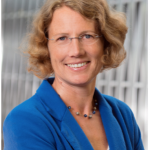 Prof Karen Steindorf, DKFZ and NCT, Germany
Prof Karen Steindorf, DKFZ and NCT, GermanyProf Steindorf is head of the division of Physical Activity, Prevention and Cancer at the German Cancer Research Centre (DKFZ) and the National Centre for Tumor Diseases (NCT) in Heidelberg, and full professor at the Medical Faculty of the University of Heidelberg.
She studied statistics with the application field theoretical medicine at the Universities of Dortmund, Bochum and Sheffield (UK), and continued her scientific career at DKFZ and the National Cancer Institute, US.
Prof Steindorf’s research focuses on the role of physical activity and exercise in primary and tertiary cancer prevention, as well as on the quality of life of cancer patients.
She has been co-ordinating principal investigator of numerous innovative randomised clinical exercise trials with cancer patients. Through these trials, as well as additional large-scale observational studies and integrated translational investigations on underlying biological mechanisms, she has produced influential research exploring the efficacy of exercise in cancer prevention.
Beyond this, she developed a strong research focus on the management of cancer- and treatment-related side-effects as well as various aspects of health-related quality of life, including cancer-related fatigue, sleep problems, pain and cognitive impairments.
-
Dr Martijn Bours
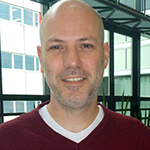 Dr Martijn Bours, Maastricht University, Netherlands
Dr Martijn Bours, Maastricht University, Netherlands
Martijn Bours is a movement scientist and physiotherapist by training. Since 2002, he has been working at the Department of Epidemiology of Maastricht University in the Netherlands.
He obtained his PhD degree in 2007 and is an associate professor involved in research on colorectal cancer survivorship.
His main research interests are the role that lifestyle behaviour (dietary habits and physical activity) and related factors (body composition) play in the health, quality of life and functioning of survivors of colorectal cancer.
His research is embedded within the GROW School for Oncology and Reproduction of the Maastricht University Medical Center.
-
Dr Melissa Hudson
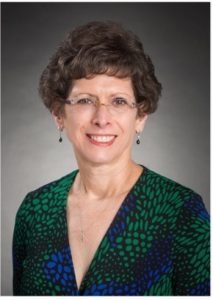 Dr Melissa Hudson, St Jude Children’s Research Hospital, US
Dr Melissa Hudson, St Jude Children’s Research Hospital, USMelissa Hudson is a member and director of the Cancer Survivorship Division in the Department of Oncology and holds the Charles E Williams Endowed Chair of Oncology-Cancer Survivorship.
She directs the St Jude After Completion of Therapy (ACT) programme, which monitors long-term childhood cancer survivors treated on St Jude trials.
Dr Hudson disseminated the St Jude model of risk-based survivor care in her role as co-chair of the Children’s Oncology Group (COG) long-term follow-up guidelines for survivors of childhood, adolescent and young adult cancer and co-chair of the international late effects of childhood cancer guideline harmonisation group (IGHG).
She’s chair of the education committee of the Childhood Cancer Survivor Study (CCSS) and a member of the CCSS executive committee.
Dr Hudson works collaboratively with multidisciplinary investigators at St Jude and within COG, IGHG and the CCSS in research initiatives evaluating biomedical and psychosocial outcomes among childhood cancer survivors, and translating data from health outcomes research into evidence-informed clinical practice guidelines and interventions to improve the quality and duration of survival after childhood cancer.
-
Prof Rod Skinner
 Prof Rod Skinner, Newcastle University, UK
Prof Rod Skinner, Newcastle University, UKProf Rod Skinner has been a consultant in paediatric and adolescent oncology/BMT in Newcastle upon Tyne since 1995, and is Honorary Professor of Childhood Cancer at Newcastle University.
He qualified in Birmingham in 1983 and trained in paediatric haematology/oncology and BMT in Newcastle, and was awarded a PhD in 1995 for his research thesis into chemotherapy-induced nephrotoxicity in children with cancer.
He was the clinical lead in Newcastle for paediatric haematology allogeneic BMT, long-term follow-up (LTFU), and bone marrow failure, as well as a busy practice in paediatric/adolescent leukaemia, until 2019. Subsequently, he has worked solely in LTFU and survivorship care.
His research interests include late adverse effects of childhood cancer treatment, especially nephrotoxicity, LTFU of childhood cancer survivors, and development of LTFU guidelines. He is a member of the UK Children’s Cancer and Leukaemia Group, and a long-standing member of the Late Effects Group (chair 2016–21), Supportive Care Group (chair 2003–08) and BMT Group (chair 2008–12).
He was a national clinical adviser in the NHS National Cancer Survivorship Initiative (2008–12). In 2008, he was one of the three founding members of PanCare (Pan-European Network for Care of Survivors after Childhood and Adolescent Cancer).
-
Prof Wendy Demark-Wahnefried
 Prof Wendy Demark-Wahnefried, University of Alabama, US
Prof Wendy Demark-Wahnefried, University of Alabama, USWendy Demark-Wahnefried is Professor and Webb Endowed Chair of Nutrition Sciences at the University of Alabama at Birmingham (UAB) and Associate Director for Cancer Prevention and Control at the O’Neal Comprehensive Cancer Center at UAB.
Her research ranges from determining mechanisms of action of nutrition-based therapies to developing and testing home-based interventions that are scalable and which improve diet, physical activity and functional status among cancer survivors.
This research has been supported by 16 NIH grants and resulted in more than 300 peer-reviewed publications. Prof Demark-Wahnefried has been recognised as a Komen Professor of Survivorship and an American Cancer Society Clinical Research Professor.
She has served on several committees including: the National Cancer Policy Forum of the National Academy of Sciences, guidelines panels of the American Cancer Society, World Cancer Research Fund, American College of Sports Medicine, and American Society of Clinical Oncology, the Biden Cancer Initiative, and as a study section member for the NIH Center of Scientific Review.
Her research teams are testing the impact of a vegetable gardening intervention among cancer survivors across Alabama, and a web-based diet (weight loss) and exercise intervention entitled AiM, Plan and act on LIFestYles (AMPLIFY) among older survivors of obesity-related cancers across the continental US.
-
Prof Folakemi Odedina
 Prof Folakemi Odedina, Mayo Clinic, US
Prof Folakemi Odedina, Mayo Clinic, USProf Folakemi Odedina is an internationally recognised cancer researcher and academic leader.
She has led global research programmes for decades, primarily funded by the National Cancer Institute and the Department of Defense. This research focuses on developing cost-effective, community-based behavioral intervention programmes to address prostate cancer in Black males.
Her research, education, training and community outreach activities have exclusively focused on addressing health disparities in racial and ethnic minority and underserved communities.
As a behavioral scientist, she conducts behavioral research across the translational continuum to test behavioral models, confirm who will benefit from behavioral interventions and examine how to deliver interventions in all settings.
Prof Odedina’s research programme has developed and validated multiple behavioral models that include multilevel assessment of barriers and facilitators for the uptake of interventions, tested and adapted interventions that include behavioral clinical trials, and worked closely with community health workers to implement health intervention programmes in diverse community settings worldwide.
She has also been a leader in training future scientists whose backgrounds are underrepresented in biomedical research.
Her focus areas of research are transatlantic roots of prostate cancer disparities in Black males, cancer care and survivorship, vaccine diversity, global health equity, global oncology research and diversity in clinical trials.
Expert Committee on Cancer Mechanisms
We aim to develop a clearer understanding of the biological processes that underpin associations between diet, nutrition, physical activity and cancer.
> Chair of the Expert Committee on Cancer Mechanisms: Professor Sarah Lewis
-
Deputy Chair – Prof Stephen Hursting
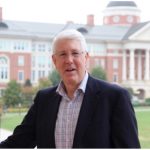 Prof Stephen Hursting, University of North Carolina, US
Prof Stephen Hursting, University of North Carolina, USStephen Hursting is the AICR/WCRF Distinguished Professor in the Department of Nutrition, Director of the Nutrition Research Institute, and member of the Lineberger Comprehensive Cancer Center at the University of North Carolina (UNC) at Chapel Hill.
He earned his PhD in nutritional biochemistry and MPH in nutritional epidemiology from UNC-Chapel Hill, and he completed postdoctoral training in molecular carcinogenesis and cancer prevention at the National Cancer Institute (NCI).
Prior to joining the UNC faculty in 2014, Prof Hursting was Professor and Chair of the Department of Nutritional Sciences at the University of Texas (UT) at Austin, the McKean-Love Endowed Chair of Nutritional, Molecular and Cellular Sciences in the UT College of Natural Sciences, and Professor of Molecular Carcinogenesis at the UT-MD Anderson Cancer Center (2005–14).
He previously served as Chief of the NCI’s Nutrition and Molecular Carcinogenesis Laboratory Section and Deputy Director of the NCI’s Cancer Prevention Fellowship Program (1999–05). His research interests centre on precision nutrition as applied to cancer prevention, particularly the molecular and metabolic mechanisms underlying obesity- cancer associations, and the interplay between obesity, metabolism, host genetics and cancer.
Primarily using pre-clinical models (including human and mouse cell lines and organoids, genetically engineered mouse models of cancer, and genetically heterogeneous collaborative cross mice) in parallel with human studies, his lab is currently focusing on the molecular and metabolic changes occurring in response to lifestyle-based (dietary and physical activity); surgical (bariatric surgery), or pharmacologic manipulation of energy metabolism and cell signalling pathways.
-
Dr Dieuwertje Kok
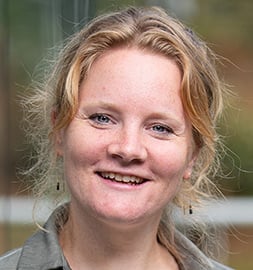 Dr Dieuwertje Kok, Wageningen University, Netherlands
Dr Dieuwertje Kok, Wageningen University, NetherlandsDieuwertje Kok received her MSc degree in Medical Biology from the University of Groningen, the Netherlands. She obtained her PhD on the role of nutrition and clinical factors in relation to prostate cancer risk and recurrence from Wageningen University, the Netherlands.
A research exchange to the laboratory of Prof Mathers at Newcastle University in the UK fuelled her interest in cancer epigenetics. Her postdoctoral work focused on biological mechanisms relevant to risk, progression and treatment of colorectal cancer.
Currently, Dieuwertje works as an assistant professor at the Division of Human Nutrition and Health of Wageningen University where she studies the role of nutrition before and during cancer treatment, with a strong link to cancer research in clinical practice.
Her passion for cancer research is characterised by a specific interest in colorectal and paediatric cancer, gut health, epigenetics, folate metabolism and cytotoxic cancer treatments.
-
Dr Fred Tabung
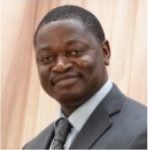 Dr Fred Tabung, The Ohio State University, US
Dr Fred Tabung, The Ohio State University, USI am an Assistant Professor at The Ohio State University College of Medicine and Comprehensive Cancer Center, where I study metabolic dysregulation as a major mediator of the role of diet in cancer risk and prognosis.
My group has developed and applied novel dietary indices to assess the influence of dietary patterns on chronic systemic inflammation and insulin hypersecretion, and the role of these biological domains of the diet in obesity, type 2 diabetes and cancer.
This work has provided novel insights including the importance of the food matrix, fat content of food and non-caloric food components on circulating biomarkers that are relevant to cancer risk and prognosis.
Prior to joining the faculty at The Ohio State University, I completed my postdoctoral fellowship at Harvard TH Chan School of Public Health, doctoral programme at the University of South Carolina, and undergraduate programme at the University of Buea, Cameroon.
-
Prof Suzanne Turner
 Prof Suzanne Turner, University of Cambridge, UK
Prof Suzanne Turner, University of Cambridge, UKSuzanne obtained her PhD from the world-renowned Paterson Institute for Cancer Research and the Christie Hospital in Manchester where she examined the potential toxic side-effects of chemoprotective gene therapy. This work was a collaborative effort with what was at that time the AstraZeneca Central Toxicology Labs at Alderley Edge.
Following this training period Suzanne moved to a research post at the Babraham Institute in Cambridge where, under the guidance of Dr Denis Alexander, she began to investigate mechanisms of lymphomagenesis, a subject that she has pursued to become a world-expert in paediatric lymphomas, specifically anaplastic large cell lymphoma (ALCL).
For the past 17 years, Suzanne has been leading an academic research group at the University of Cambridge within the Department of Pathology and based at the Addenbrooke’s Hospital campus in Cambridge. It’s here that Suzanne conducts academic research of an international standard, and teaches and examines aspects of the medical, veterinary and natural science tripos. Suzanne is also the director of postgraduate education in the Department of Pathology.
In 2007, Suzanne was awarded the prestigious Leukaemia and Lymphoma Research (now Blood Cancer UK) Bennett Fellowship and in 2012 a further 5-year senior lectureship award.
Among her achievements are the inception and establishment of the European Research Initiative on ALCL, a study group that brings together scientists from across Europe to foster collaboration and advancement in this important area of health research.
Suzanne was also the lead of ALKATRAS, an EU Marie Curie Innovative Training Network of 14 research groups in 7 EU countries and is currently non-clinical chair of the European Inter-Group for Collaboration into Childhood Non-Hodgkin Lymphoma (EICNHL), co-chair of the Cancer Research UK (CRUK) Cambridge Centre Paediatric Programme, and biological lead for the National Cancer Research Institute (NCRI) paediatric lymphoma Clinical Study Group (CSG).
Suzanne collaborates with a wide array of scientists and labs around the world, most notably the Uganda Cancer Institute in Kampala with whom she is working towards finding better therapies for children with cancer.
Among her other interests, Suzanne is the scientific adviser to the Alex Hulme Foundation and Francesca Richardson Trust. She is also a member of both the American and British Associations for Cancer Research (BACR/AACR), the Children’s Cancer and Leukaemia Group (CCLG) in the UK and the International Society for Paediatric Oncology (SIOP). Suzanne also sits on the scientific committee of the European arm of SIOP, the MHRA plastics, reconstructive and aesthetic surgery (PRASEAG) committee and the European Commission’s scientific committee on Health, Environmental and Emerging Risks (SCHEER) working group on breast implants and cancer. In addition, she is a member of the international grant review panels of the World Cancer Research Fund and the Swedish Research Council’s medicine and health review panel.
-
Dr Zdenko Herceg
 Dr Zdenko Herceg, IARC, France
Dr Zdenko Herceg, IARC, FranceDr Zdenko Herceg has an international reputation as the leader in the application of epigenetic/epigenomic analyses to mechanistic and profiling studies of carcinogenesis and discovery of biomarkers of environmental exposures and cancer risk.
He is currently Head of Branch of Epigenomics and Mechanisms at International Agency for Research on Cancer (Lyon, France). Prior to joining IARC (1997), he was a postdoctoral scientist at the Research Institute of Molecular Pathology (IMP) in Vienna, Austria.
He earned his PhD (in 1995) from the University of St Andrews (UK) in the field of oncogenic transformation of human epithelial cells. Dr Herceg has developed and co-ordinated multidisciplinary projects involving epigenomics and mechanistic studies involving international population-based studies. These include major initiatives for international interdisciplinary collaborations (funded by major international and national funding agencies).
These studies lead to conceptual breakthroughs and major advances in understanding molecular causes of tumorigenesis and to discovery of powerful molecular biomarkers relevant to cancer causation and opened new avenues for research in this emerging field.
Dr Herceg authored more than 200 original peer-reviewed research publications in the field of epigenetics and cancer research.
-
Dr Lee Jones
 Dr Lee Jones, Memorial Sloan Kettering Cancer Center, US
Dr Lee Jones, Memorial Sloan Kettering Cancer Center, USDr Lee Jones is a Member and Attending Physiologist in the Department of Medicine and Director of the Exercise Oncology Service at Memorial Sloan Kettering Cancer Center (MSK).
Dr Jones completed his PhD and postdoctoral fellowship in Exercise Oncology at the University of Alberta (Edmonton, Alberta, Canada). His research programme focuses on a translational approach to the investigation of exercise on cancer pathogenesis.
He has published numerous scientific articles and his work is supported by the National Institutes of Health and AKTIV Against Cancer.
-
Dr Richard Simpson
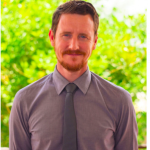 Dr Richard Simpson, University of Arizona, US
Dr Richard Simpson, University of Arizona, USDr Simpson is a full Professor in the School of Nutritional Sciences and Wellness (College of Agriculture and Life Sciences) at the University of Arizona and holds joint appointments in Pediatrics (College of Medicine), Immunobiology (College of Medicine), the Arizona Cancer Center and the Bio5 Institute.
His research is concerned with the effects of exercise on the immune system in the context of cancer, ageing and human performance.
Major focus areas include understanding:
- how exercise and other behavioral interventions can offset age-related decrements in the normal functioning of the immune system (immunosenescence)
- how exercise-induced adrenergic receptor signalling can be used to improve anti-cancer immunity and augment the manufacture and efficacy of cancer therapeutics
- the interplay between the immune and neuroendocrine system during high level human performance and extreme isolation (eg space travel)
- how the immune system can be manipulated to develop potent cell therapies that will help eliminate cancer
He is president-elect of the International Society of Exercise Immunology (ISEI), a fellow of the American College of Sports Medicine (ACSM) and sits on the editorial boards of the following journals: Brain, Behavior and Immunity; Exercise Immunology Reviews (Associate Editor), and Immunity and Ageing.
Dr Simpson has published more than 120 peer-reviewed articles and book chapters, and served as the primary mentor for >20 PhD students and postdoctoral scientists. His current/recent research is supported by NASA, the National Institutes of Health (NIH) and industry.
Expert Committee on Obesity
This work aims to ensure that our Cancer Prevention Recommendations relating to obesity remain up to date, with the potential to develop more specific recommendations.
> Chair of the Expert Committee on Cancer Incidence: Professor Jaap Seidall
-
Deputy Chair – Dr Michael Pollak
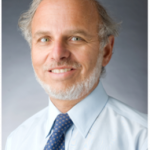 Dr Michael Pollak, US
Dr Michael Pollak, USDr Pollak is a tenured Professor in the Department of Oncology at McGill University in Montreal and holds the Alexander-Goldfarb Research Chair. His medical education was at McGill, and postgraduate specialist training in Oncology was at the University of Toronto.
He practices medical oncology at the Jewish General Hospital, and also leads laboratory and population-based research programmes. He heads the Division of Cancer Prevention at the Department of Oncology at McGill and the Stroll Cancer Prevention Centre at the Jewish General Hospital.
Dr Pollak has published more than 500 scientific papers with a total of over 42,500 citations, and an H-index is 120, placing him in the top 10% of researchers in terms of citations and research impact.
He collaborates widely with researchers around the world and has received more than $25m in peer-reviewed funding. In 2012, he was awarded the Aisenstadt Award for Academic Achievement by McGill/JGH faculty and the Harold Warwick Prize by the Canadian Cancer Society Research Institute.
In 2018, he was appointed co-Editor-in-Chief, Cancer Prevention Research by the American Association for Cancer Research (AACR) and elected to the Royal Society of Canada (RSC) the following year. He also is co-Editor-in-Chief of Cancer Metabolism, a specialty journal published by Springer Nature.
His research focuses on the intersection of oncology, endocrinology and metabolism, and he employs a multidisciplinary approach, using both laboratory and population methods.
-
Dr Tanya Agurs-Collins
 Dr Tanya Agurs-Collins, National Cancer Institute, US
Dr Tanya Agurs-Collins, National Cancer Institute, USDr Tanya Agurs-Collins is a Program Director in the Behavioral Research Program, Division of Cancer Control and Population Sciences, National Cancer Institute (NCI).
She is responsible for directing, co-ordinating and managing a research grant portfolio in obesity, diet and weight loss interventions for cancer prevention and control. Dr Agurs-Collins’ research focuses on racial/ethnic disparities in obesity and diet on cancer risk and survival.
Dr Agurs-Collins has a PhD in Nutritional Sciences with an emphasis in epidemiology and an MS in Public Health Nutrition from the Pennsylvania State University, University Park, PA.
She is a registered dietitian with the Academy of Nutrition and Dietetics and a member of The Obesity Society and the American Society for Nutrition.
-
Prof John Reilly
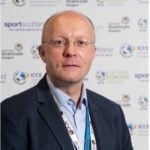 Prof John Reilly, University of Strathclyde, UK
Prof John Reilly, University of Strathclyde, UKJohn Reilly is Professor in Physical Activity and Public Health Science, University of Strathclyde, Glasgow, Scotland. He was previously Professor of Paediatric Energy Metabolism, University of Glasgow.
His research group carries out epidemiological and physiological work that focuses on childhood obesity globally: diagnosis; surveillance; causes; health and non-health consequences (eg cognition and academic attainment); prevention; treatment.
He has more than 340 peer-reviewed papers and is highly cited: mean field-weighted citation impact for all papers = 3.25; August 2020 h index in Scopus= 65, h index Google Scholar =83.Clarivate Highly Cited Researcher (2011-), top 0.1% cited researcher in Science & Social Science, Cross-Field.
He has national and international leadership responsibilities. These include chairing the UK Health Depts Physical Activity Guideline Development Group for the Early Years 2010–11 and 2017–19.
He was a member of the WHO Working Group on Science and Evidence for Ending Childhood Obesity, 2014–161 , the advisory group for the WHO Healthy Life Trajectories Initiative 2016–17, and the Guideline Development Group for the WHO Guidelines for Physical Activity, Sedentary Behaviour, and Sleep for the Under-5s in 20192.
He is an Executive Committee Member of the Active Healthy Kids Global Alliance KE Project (2014–present) and an Executive Committee and Founding Member of the International Surveillance Study for the Early Years (SUNRISE), 2017–present.
-
Dr Paul Chadwick
 Dr Paul Chadwick, University College London, UK
Dr Paul Chadwick, University College London, UKPaul Chadwick is a Consultant Clinical Psychologist, Honorary Associate Professor at the UCL Centre for Behaviour Change, and Co-Director of the NIHR DHSC Policy Research Unit in Behavioural Science. He works on the development of interdisciplinary approaches to research and practice in behaviour change.
Paul has been at the forefront of developing, evaluating and disseminating evidence-based approaches to obesity and diabetes management in the UK and internationally, and works on several large trials of behaviour change interventions funded by the CDC and NIHR.
As a clinical psychologist he has developed several scalable interventions for diabetes prevention and remission, which are implemented at scale through the NHS Low Calorie Diet and Better Health programmes. He has held senior leadership positions in the NHS, working as psychology lead for diabetes across north central London.
More recently he has been developing methods to integrate systems and behaviour change theory, and testing their application to transform complex systems such as those involved in energy, biodiversity, food and equality for individuals of Black and Minority Ethnicities.
-
Prof Tobias Pischon
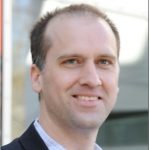 Prof Tobias Pischon, Max Delbrück Center for Molecular Medicine, Germany
Prof Tobias Pischon, Max Delbrück Center for Molecular Medicine, GermanyTobias Pischon is a medical doctor and epidemiologist with a doctoral degree in medicine, a Masters in Public Health (MPH), and the facultas docendi (Habilitation) and the venia legendi in epidemiology and social medicine.
He is a Full Professor for Molecular Epidemiology at the Charité Universitätsmedizin Berlin and Head of the Molecular Epidemiology Research Group and of the Biobank Technology Platform at the Max-Delbrück-Center for Molecular Medicine (MDC).
Past appointments include positions at the Harvard School of Public Health, Boston, MA, and at the German Institute of Human Nutrition (DIfE).
He has been working as investigator on the Nurses’ Health Studies I and II, the Health Professionals Follow-up Study, and the European Prospective Investigation into Cancer and Nutrition (EPIC), and is among the principal investigators and member of the board of directors of the German National Cohort (NAKO Gesundheitsstudie).
Prof Pischon was stipend of the German Academic Exchange Service (DAAD) and received several awards from scientific societies. His research focuses on the impact of metabolic factors, diet and lifestyle on the risk of chronic diseases, particularly cancer, cardiovascular disease and diabetes. His research results have been published in major international journals.
-
Prof Annie Anderson
 Prof Annie Anderson, University of Dundee, UK
Prof Annie Anderson, University of Dundee, UKAnnie S. Anderson BSc PhD RD FRPE FRSE is Professor of Public Health Nutrition and Co-director of the Centre for Research into Cancer Prevention and Screening at Ninewells Medical School, University of Dundee.
She trained in nutrition and after 2 years clinical dietetic practice in Cambridge began an academic career. Following a PhD at the University of Aberdeen and research posts at the University of Glasgow and the MRC Medical Sociology Unit she was appointed to a professorial position in the University of Dundee in 1996.
Her research focusses on theory based, behaviorally focused, dietary and obesity (population and individual) interventions aimed at chronic disease risk reduction with a special interest in cancer prevention.
She has undertaken a number of international and national roles including: advisor to WHO International Agency for Research (IARC) on the development of The European Code Against Cancer; member of the expert working group on the Cancer Prevention handbook Absence of Excess Body Fat; Chair of the grant panel for The World Cancer Research Fund International; and member of the UK Scientific Advisory Committee on Nutrition (SACN).
Regular Grant Programme Panel
All grant applications to World Cancer Research Fund International are reviewed by a panel of experts, comprising established investigators in different disciplines who have expertise in diet, nutrition, body composition, physical activity and cancer.
Australian experts on diet, nutrition and physical activity assist our Grant Panel as corresponding members, reviewing only applications for research grants from Australia.
-
Prof Rudolf Kaaks (Chair)
-
Head of the Division of Cancer Epidemiology, German Cancer Center (DKFZ)
-
Professor of Cancer Epidemiology, University of Heidelberg, Germany
-
-
Prof Anne May (Co-Chair)
- Professor of Clinical Epidemiology of Cancer Survivorship
- Department of Epidemiology, Julius Center for Health Sciences and Primary Care, University Medical Center Utrecht, Utrecht University, the Netherlands
-
Dr Rebecca Beeken
- Associate Professor of Behavioural Medicine
- Leeds Institute of Health Sciences, University of Leeds, UK
-
Dr Calistus Wilunda (Corresponding Panel Member)
- Associate Research Scientist
- Nutrition and Food Systems Unit, African Population and Health Research Center, Nairobi, Kenya
-
Dr Richard Burt
- Clinician Scientist and Leukaemia Consultant
- University College London Hospitals NHS Foundation Trust, UK
-
Dave Chuter
- Patient and Public Representative
-
Prof Melinda Craike (Corresponding Panel Member)
- Professor of Physical Activity and Health
- Institute for Health and Sport, Victoria University, Australia
-
Claire James
-
Patient and Public Representative
-
-
Prof Sarah Lewis
- Professor of Molecular Epidemiology
- Department of Population Health Sciences, Bristol Medical School, University of Bristol, UK
-
Dr Brigid Lynch (Corresponding Panel Member)
- Associate Professor of Cancer Epidemiology
- Cancer Epidemiology Division, Cancer Council Victoria, Australia
-
Dr Dora Romaguera Bosch
- Principal Investigator, Nutritional Epidemiology and Cardiovascular Physiopathology (NUTRECOR) group
- Health Research Institute of the Balearic Islands (IdISBa), Spain
-
Dr Clare Shaw
- Freelance Consultant Dietitian, UK
-
Dr Helene Rundqvist
- Senior Researcher, Department of Laboratory Medicine, Division of Clinical Physiology, Karolinska Institutet, Sweden
-
Dr Bethany van Guelpen
- Associate Professor, Clinical Oncologist
- Department of Diagnostics and Intervention, Oncology, Umeå University, Sweden
- Wallenberg Centre for Molecular Medicine, Umeå University, Sweden
-
Dr Renate Winkels
- Associate Professor of Nutrition and Disease
- Division of Human Nutrition and Health, Wageningen University, the Netherlands
-
Dr James Thorne
- Associate Professor of Cancer, Nutrition, and Epigenetics
- School of Food Science and Nutrition, University of Leeds, UK
-
Prof Bernard Corfe
- Professor of Human Nutrition and Health
- Human Nutrition Research Centre and the Centre for Healthier Lives, Newcastle University, UK
INSPIRE Research Challenge Panel
The INSPIRE Research Challenge is reviewed by an independent panel of experts, including leading investigators in diet, nutrition, body composition, physical activity, immunology and cancer.
-
Prof Richard Simpson (Chair)
- Professor of Exercise Physiology and Immunology, School of Nutritional Sciences and Wellness, The University of Arizona Cancer Center, US
-
Prof Ellen Kampman (Co-Chair)
- Chair in Nutrition and Disease, Wageningen University, Netherlands
-
Prof Yikyung Park
- Professor of Surgery, Washington University School of Medicine in St Louis, US
-
Prof Kathryn Beck
- Professor of Human Nutrition and Dietetics, Massey University, New Zealand
-
Dr Christina Dahm
- Associate Professor of Epidemiology, Aarhus University, Denmark
-
Dr James Turner
- Associate Professor in Exercise Physiology and Immunology, School of Sport, Exercise and Rehabilitation Sciences, University of Birmingham, UK
-
Ceri Steele
- Patient and Public Representative
Policy Advisory Group
The Policy Advisory Group advises us on:
- the evidence needs of the policymaking community
- processes to update, interpret and communicate the evidence for policy
- outputs that are useful to the policy community
- how to overcome barriers to policy implementation
- how to stimulate wider implementation of more effective policies
- developing relationships and alliances to enhance our impact
Launched in April 2015, the Policy Advisory Group comprises experts involved in policy from government, academia and civil society in Australia, Barbados, Canada, Malaysia, Mexico, Norway, South Africa, the UK and the US. The Group also includes observers from the World Health Organization and the Union for International Cancer Control.
-
Michelle Halligan, Canadian Partnership Against Cancer
Michelle Halligan is the Director of Prevention and Performance Measurement and Evaluation at the Canadian Partnership Against Cancer, an organisation funded by the Canadian federal government to accelerate action on cancer.
She leads work with partners on pan-Canadian system change initiatives related to the elimination of cervical cancer, including improving immunisation rates, smoking cessation within oncology settings, and evidence-informed healthy public policy for cancer prevention. She also leads the organisation’s approach to measuring and evaluating its impact and progress towards the goals of the Canadian Strategy for Cancer Control. She has worked on cancer and chronic disease prevention, injury prevention, organisational culture and evaluation at national, provincial and local levels in Canada.
Michelle is a member of several scientific and advisory committees related to population health and evaluation. She holds a Master of Science in Health Sciences from Western University, and an Honours Bachelor of Science in Biochemistry and Integrative Biology from the University of Toronto.
-
Maisha Hutton, Healthy Caribbean Coalition
Maisha Hutton has been the Executive Director of the Healthy Caribbean Coalition (HCC), the only regional alliance of NCD-focused civil society organisations, since 2012. Prior to joining the HCC, Maisha worked in HIV/AIDS/STI prevention for more than a decade.
At the HCC Maisha is responsible for the daily operations, providing strategic oversight and management across all areas. Maisha also serves as a member on the NCD Child Governing Council.
-
Prof Shiriki Kumanyika, University of Pennsylvania
Shiriki Kumanyika is an Emeritus Professor of Epidemiology at the University of Pennsylvania located in Philadelphia, Pennsylvania, USA. Prof Kumanyika’s research and policy activities focus on food and obesity, related health consequences, and approaches to addressing health inequities. She is an elected member of the USA National Academy of Medicine (formerly known as the Institute of Medicine). She has served on and chaired the National Academies Food and Nutrition Board. Prof Kumanyika is also a past president of the American Public Health Association.
In the global sphere, Prof Kumanyika is a nutrition adviser to the WHO, co-led the Policy and Prevention activities of the World Obesity Federation for more than a decade, and was a member of the Lancet Commission on Obesity from 2016 to 2019. She served on our Expert Panels on Diet, Nutrition and Cancer Prevention (2002–07) and Policy and Action for Cancer Prevention (2007–09).
-
Dr Henry Li, Tony Blair Institute for Global Change
Henry Li is a Senior Policy Advisor at the Tony Blair Institute for Global Change, and leads policy efforts on building life-sciences ecosystems. Working across TBI’s health, science-and-technology and government-innovation policy teams, he has delivered major cross-functional projects on biotech, biosecurity and global health security, data, capital markets, and industrial strategy, including the New National Purpose reports led by Tony Blair in collaboration with William Hague.
Before working at TBI, Henry led on strategy, policy, research and delivery for the World Health Organisation Council on the Economics of Health For All, and on mission-led innovation and industrial policy at University College London. He holds a PhD from the London School of Hygiene & Tropical Medicine.
-
Dr Feisul Idzwan Mustapha, Ministry of Health, Malaysia
Dr. Feisul Mustapha is a senior consultant public health physician best known for his leadership in the prevention and control of non-communicable diseases (NCDs) in Malaysia. His special areas of interest include diabetes, cardiovascular diseases, cancers and obesity. At the Ministry of Health Malaysia, he is currently the Director at the Perak State Health Department, responsible for the overall planning, coordination and implementation of all medical and public health programs and activities in the state of Perak.
He combines his high-level experiences in the government with active engagement of civil society and multilateral institutions. Dr Feisul is currently a Board Member for the International Advisory Board of the United Nations University — International Institute for Global Health (UNU-IIGH). He was previously Chair of the Scientific Advisory Group for the Monash University South East Asia Community Observatory (SEACO), and was a Member of the Strategic and Technical Advisory Group on the Prevention and Control of NCDs (STAG-NCD) for WHO Geneva.
-
Prof Mike Rayner, University of Oxford and Centre on Population Approaches for Non-Communicable Disease Prevention, UK
Mike Rayner is a Professor of Population Health at the Nuffield Department of Population Health of the University of Oxford where the focus of his research is the promotion of healthy and sustainable diets.
Mike is also Chair of Sustain: the alliance for better food and farming in the UK and he is Chair of the Nutrition Expert Group for the European Heart Network. He is also an ordained priest in the Church of England.
-
Dr Terry Slevin, Public Health Association of Australia
-
Dr Pubudu Sumanasekara, Movendi International
-
Suzanne Zhou, McCabe Centre for Law and Cancer
Suzanne Zhou is the Manager for Prevention at the McCabe Centre for Law and Cancer, a joint initiative of Cancer Council Victoria, the Union for International Cancer Control and Cancer Council Australia.
Suzanne leads the McCabe Centre’s work with countries to adopt effective regulatory measures to prevent NCDs, defend public health laws from legal challenge, and ensure policy coherence between health and trade and investment law.
The McCabe Centre is the WHO Collaborating Centre for Law and Noncommunicable Disease and a Knowledge Hub for the WHO Framework Convention on Tobacco Control, and has trained more than 200 people in 70 countries on the effective use of law to address NCDs.
Suzanne previously worked at Lawyers Collective in New Delhi as a research officer supporting the mandate of Anand Grover as the UN Special Rapporteur on the right to health, and holds an LLM in international law from Cambridge, an LLB/BMus from the University of Melbourne, and the Hague Academy of International Law’s Diploma in Public International Law. She served as co-director of the Hague Academy’s Centre for Studies and Research on epidemics and international law in 2020–21.
FITco Scientific Advisory Group
The FITco study, launched in May 2025, is run by the Princess Máxima Center and Wageningen University & Research.
-
Dr Elena Ladas
- Sid and Helaine Lerner Professor of Global Integrative Medicine, Columbia University Irving Medical Center
-
Prof Suzanne Turner
- Professor of Childhood Cancer Biology, University of Cambridge
-
Prof Bob Phillips
- Professor of Paediatrics and Evidence Synthesis, University of York
-
Prof Koen Joosten
- Professor of Paediatric Surgery, Erasmus University Rotterdam
Other acknowledgements
WCRF staff and other contributors to the Global Cancer Update Programme.
-
Imperial College London Research Team
Researchers at Imperial College London maintain a central database of research papers on diet, nutrition, physical activity, weight and cancer (including cancer survivors).
The team prepares systematic literature reviews of the evidence as agreed with the CUP Global Panel and Secretariat. The review and collection of evidence is independent of the Panel’s judgement of the evidence.
Kostas Tsilidis PhD
Co-Principal InvestigatorDoris Chan PhD
Co-Principal InvestigatorGeorgios Markozannes PhD
Post-doctoral research assistantDagfinn Aune PhD
Post-doctoral research assistantAhmad Jayedi PhD
Post-doctoral research assistantKatia Balducci MSc
Research AssistantMargarita Cariolou MSc
Research AssistantSayada Zartasha Kazmi MSc
Research AssistantLam Teng MSc
Database Manager -
CUP Global collaborators
The inclusion of novel work areas in CUP Global is partly being facilitated through collaborations with experts in the cancer research community.
These collaborations form the basis of a series of commissioned research projects awarded by the World Cancer Research Fund network.
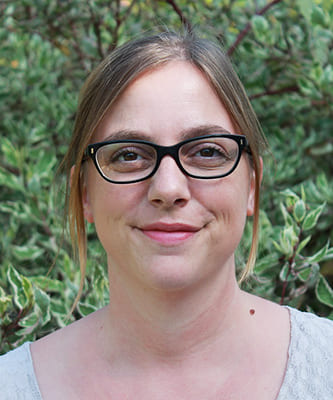 Dr Laure Dossus
Dr Laure DossusInternational Agency for Research on Cancer, France
Mechanisms Collaboration
 Dr Dieuwertje Kok
Dr Dieuwertje KokWageningen University, Netherlands
Life-course Collaboration
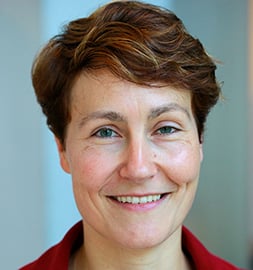 Dr Franzel van Duijnhoven
Dr Franzel van DuijnhovenWageningen University, Netherlands
Life-course Collaboration
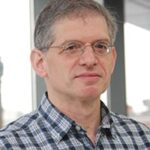 Professor Ed Giovanucci
Professor Ed GiovanucciHarvard University, US
Dietary and Lifestyle Patterns Collaboration
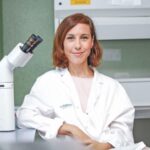 Dr Dora Romaguera
Dr Dora RomagueraBarcelona Institute for Global Health, Spain
Dietary and Lifestyle Patterns Collaboration
 Dr Yi Liu
Dr Yi LiuUniversity of Bristol, UK
Automation Collaboration
-
WCRF Network Executive
The Global Cancer Update Programme (CUP Global) is managed by World Cancer Research Fund International on behalf of the World Cancer Research Fund network.
Marilyn Gentry
President
World Cancer Research Fund InternationalRachael Gormley
CEO
World Cancer Research Fund InternationalNadia Ameyah
Director
Wereld Kanker Onderzoek FondsVickie Gregory
Executive Director
World Cancer Research Fund International -
CUP Secretariat
The Secretariat is responsible for the day-to-day management of CUP Global, including coordination of the Panel, Formal Observers, Expert Committees, Imperial College London team and collaborators.
Christelle Clary
Head of the CUP Global Secretariat
World Cancer Research Fund InternationalHelen Croker PhD RD
Assistant Director of Research and Policy
World Cancer Research Fund InternationalPanagiota Mitrou PhD
Executive Director of Research, Policy and Innovation
World Cancer Research Fund InternationalNigel Brockton PhD
Vice President of Research
American Institute of Cancer Research


